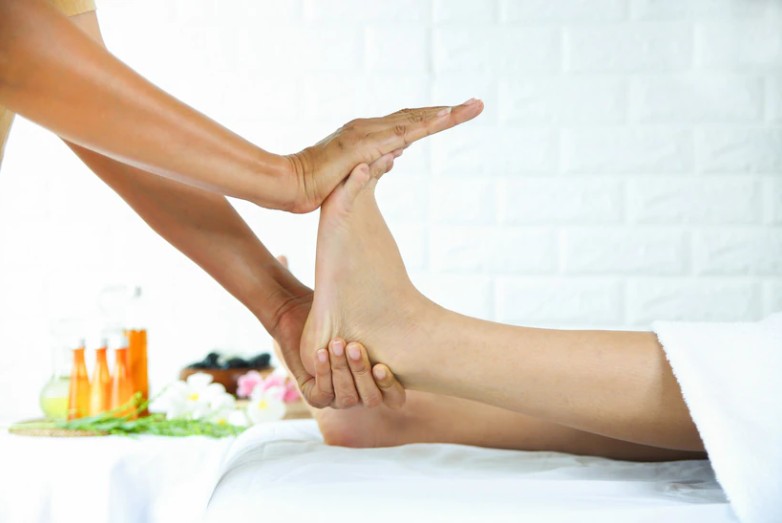Does Flat Feet Make You Shorter? The Truth About Height and Foot Arch
Flat feet is a common condition where the arch on the inside of the foot is flat, making the entire sole of the foot touch the ground when standing. Many people with flat feet wonder if their condition affects their height. In this article, we will explore the relationship between flat feet and height, analyzing scientific studies, addressing common myths, and providing practical solutions for individuals with flat feet.
Understanding Flat Feet

Flat feet, also known as pes planus, is a normal variation in foot structure. Instead of a high arch on the inside of the foot, people with flat feet have a flatter foot shape where the entire sole of the foot touches the ground when they stand up. Flat feet is a common condition and affects approximately 20 to 30 percent of adults in the United States.
Debunking the Myth: Flat Feet and Height
One prevalent myth is that people with flat feet are shorter than those with normal arches. However, scientific studies have found no significant correlation between foot arch height and actual height. A study published in the Journal of Orthopedic and Sports Physical Therapy in 2017 found that there was no association between foot posture and stature. Therefore, flat feet do not make you shorter.
The Anatomy of Height
Height is a complex trait that is influenced by multiple factors, including genetics, nutrition, and environmental factors. Height is determined by the interaction of both genetic and environmental factors, and it is generally believed that genetics contributes to approximately 60 to 80 percent of a person’s height.
Debunking the Myths
Although the scientific evidence is clear, myths surrounding flat feet and height persist. Let’s address some of these misconceptions and offer a more accurate understanding:
Myth: Flat feet can stunt your growth.
Truth: There is no scientific evidence to support the claim that flat feet can affect your growth or development. Flat feet are a normal variation in foot structure and are generally harmless, unless they cause pain or discomfort.
Myth: Flat feet are a deformity.
Truth: Flat feet are not a deformity. They are a common variation in foot structure and do not necessarily require treatment. In most cases, flat feet are asymptomatic and do not negatively impact a person’s overall health or physical capabilities.
Impact of Flat Feet on Physical Health
Although flat feet do not affect height, they can have an impact on physical health. Flat feet can cause foot pain, particularly in the arch or heel, and other foot conditions such as bunions, hammertoes, and corns. Additionally, individuals with flat feet may experience knee or hip pain due to an altered gait.
Strategies for Managing Flat Feet
If you have flat feet and experience discomfort or pain, there are several strategies you can try to alleviate symptoms:
Wear supportive footwear:Choose shoes with arch support and proper cushioning to provide adequate support for your flat feet. Look for brands that specialize in footwear for individuals with flat feet.
Orthotic inserts: Custom orthotic inserts or over-the-counter arch supports can help provide additional support and alleviate pain.

Physical therapy exercises: Engage in specific exercises designed to stretch and strengthen the muscles in your feet and ankles. A physical therapist can provide guidance and recommend appropriate exercises.
Addressing Other Concerns and Questions
There are other concerns and questions about flat feet and how they may affect daily life. One concern is whether flat feet affect balance or athletic performance. The truth is that individuals with flat feet can engage in physical activity, and appropriate footwear and support can help.
Another question is whether flat feet make your feet longer. The truth is that flat feet do not make your feet longer but can cause the foot to appear wider.
Conclusion
In conclusion, flat feet do not make you shorter. While flat feet can cause foot discomfort or pain, they usually do not require treatment unless they are causing significant symptoms. Proper footwear, orthotics, and physical therapy exercises can help alleviate symptoms and improve gait. If you are experiencing foot pain or discomfort, it is essential to consult a healthcare professional to determine the best course of treatment.
Frequently Asked Questions
Does being flat-footed make you shorter?
No, being flat-footed does not directly affect your stature. People with flat feet have a lack of arch in their feet, causing their feet to be entirely on the ground when standing. There is a common misconception that flat-footedness can make you shorter, but there is no scientific evidence that points to a correlation between the structure of your foot and your height.
Do flat feet affect height?
No, flat feet do not directly affect height. Flat feet is a condition where the arches on the inside of the feet are relatively flat, causing the entire sole to touch the ground when standing. This variation in foot structure does not influence your stature
Is it normal for the arch to be visible when not standing?
Yes, in individuals with flexible flat feet, the arches in the feet can appear visible when not standing, and they disappear when weight is put on the feet
Can I build arches in my flat feet with exercises?
Some people report visible changes in the height of their arches after practicing foot-strengthening and stretching exercises consistently for several weeks 3. However, the success of these exercises may vary depending on the individual and the severity of their flat feet.
Should I see a podiatrist for my flat feet?
If your flat feet are causing you pain, discomfort, or significantly affecting your posture and walking pattern, it’s a good idea to consult with a podiatrist for a proper evaluation and potential treatment options.
Can orthotic inserts help improve flat feet?
Yes, orthotic inserts (custom-made or over-the-counter) can help provide additional support for your feet and alleviate pain resulting from flat feet. They may also help improve foot and ankle alignment when walking or standing
Can flat feet cause postural changes?
Yes, flat feet might influence your gait or walking pattern, potentially leading to some postural changes. While these changes may give the impression of appearing shorter, it does not inherently impact your height.
Does the prevalence of flat feet change with age?
The prevalence of flat feet can change depending on a person’s age. According to a study, about 8 percent of U.S. adults ages 21 and older have flat feet
Do I need treatment for flat feet if they don’t cause any discomfort?
No, you do not need treatment for flat feet if they are asymptomatic and do not cause any pain or discomfort. However, if you experience pain related to your flat feet, consult a healthcare professional for proper evaluation and treatment options.
Is it possible to prevent flat feet?
It may not always be possible to prevent flat feet, as they can be genetic or acquired due to various factors. However, maintaining a healthy body weight, wearing supportive footwear, and engaging in foot-strengthening exercises may help minimize the risk of developing flat feet







